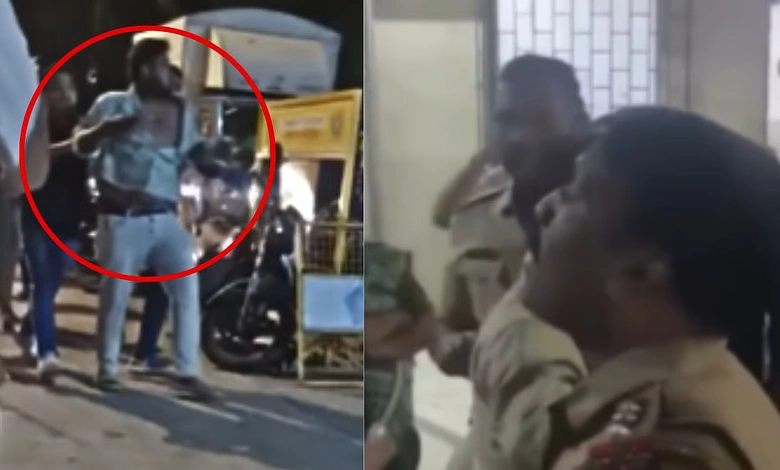In a swift response to allegations of unprofessional conduct, the Mumbai police have suspended two officers and initiated an inquiry into the actions of five others, following a confrontation involving Bajrang Dal activists at the Oshiwara police station.
The incident unfolded when Shankar Jadhav, the district convenor of Bajrang Dal, arrived at the station with 10 to 15 supporters. They reported an alleged case of misbehavior toward a woman in the nearby Jogeshwari area and pressed for immediate and stringent measures against the accused individual.
According to an official directive from Deputy Commissioner of Police (Zone IX) Dixit Gedam, a senior officer engaged with the group, promising that standard procedures would guide any response. Despite this assurance, the activists lingered near the station’s entrance, refusing to vacate the space.
ALSO READ : Son’s Violent Outburst Against Doctors Sparks Citywide Strike Threat in Mumbai
This standoff reportedly escalated when five on-duty officers—identified as Sub-Inspector Ramesh Kengar, Sub-Inspector Ganesh Gayke, Sub-Inspector Babu Totre, Sub-Inspector Deepak Barve, and Sub-Inspector Azim Zari—allegedly raised their voices and acted inappropriately toward the visitors for obstructing access. The Mumbai police order described the officers’ demeanor as “unbecoming of the force,” noting that it had damaged the department’s reputation.
The directive, addressed to the Assistant Commissioner of Police (Bandra division), mandates a preliminary investigation into the five sub-inspectors’ conduct. A detailed report must be forwarded to the DCP Zone IX office within one week.
Further, two of the implicated officers have been immediately suspended while the probe continues, as confirmed by a senior police official. This move underscores the force’s commitment to upholding standards amid rising scrutiny over public interactions.
The episode highlights ongoing tensions between activist groups and law enforcement in urban settings, where demands for quick justice can clash with procedural norms. As the inquiry progresses, it may shed light on protocols for handling such visits to prevent future altercations.
